If you’re facing a court date for a speeding ticket, knowing what to say in court for speeding ticket can make a significant difference. This article will guide you on how to present your case effectively, from understanding your citation to using strategic language in court.
You’ll find tips on gathering evidence, cross-examining the officer, and the critical ‘magic words’ that can sway the verdict in your favor.
Key Takeaways
- Understanding the specifics of your speeding ticket, including potential errors, is crucial for developing a solid defense.
- Preparation is key; gather evidence, consult an attorney, and practice your presentation to effectively contest the ticket.
- Using persuasive language and maintaining a professional appearance in court can significantly influence the judge’s perception and the case outcome.
Understanding Your Speeding Ticket Case
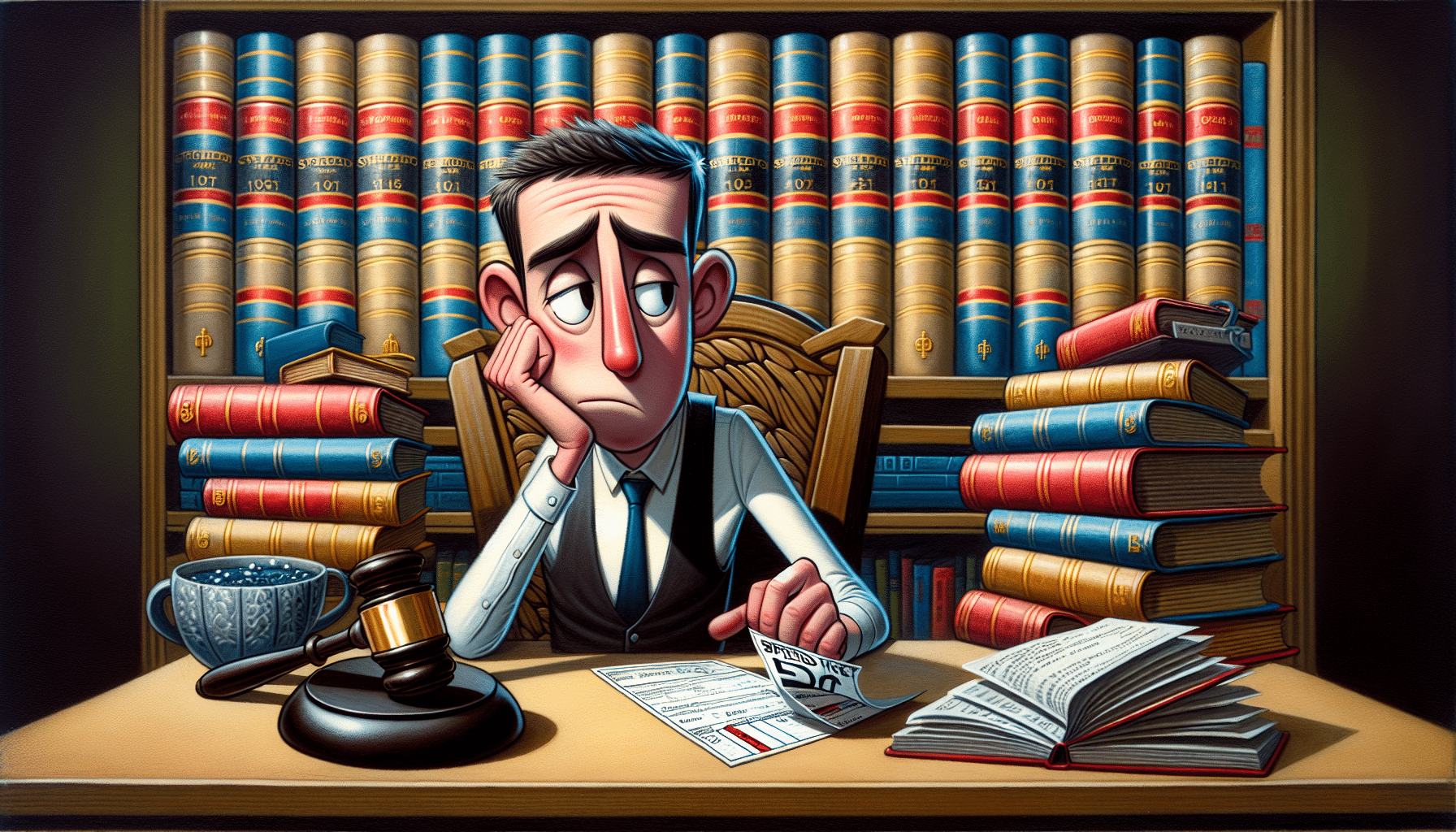
Before appearing in traffic court, you need to understand the specifics of your speeding ticket case. A speeding ticket is issued to a driver for exceeding the speed limit on a particular road. The speed limit is the maximum legal speed a vehicle may travel, and it is usually indicated by road signs, known as posted speed limit signs. Speeding tickets can have significant implications for drivers.
Knowing the exact details of your citation can significantly impact the outcome of your case. Pay close attention to the information on your ticket, such as the alleged speed, the location of the violation, and any notes made by the issuing officer. These details will form the foundation of your defense and can help identify any potential errors that could work in your favor.
Understanding the implications of a traffic ticket is also essential. A conviction can lead to points on your driving record, increased insurance premiums, and even possible license suspension. By thoroughly understanding your speeding ticket case, you can better prepare for your traffic ticket trial and increase your chances of a successful outcome.
Preparing for Your Court Date
Preparation is key to a successful defense in traffic court. Start by thoroughly reviewing your speeding ticket for any errors or inaccuracies, as these can be used to challenge the validity of the ticket. It’s also crucial to gather all relevant evidence, including documents, photos, and witness statements, to build a strong case.
Consulting an attorney can offer valuable insights into your case and guide you on the best course of action. They can help you understand the legal nuances and prepare a compelling defense strategy. Prepare witnesses to ensure they provide clear and confident testimony in court.
Mock trials and practice sessions can help identify weaknesses in your arguments and improve your presentation skills. Utilize litigation support services to streamline the preparation process and organize your case materials efficiently. Effective communication among all parties involved in the case enhances coordination and reduces misunderstandings, ensuring a smooth trial process.
Being well-prepared and knowledgeable about your case enables you to present a convincing defense and improve your chances of a favorable outcome.
What to Say When Pleading Not Guilty
How you present your plea when contesting a speeding ticket can significantly impact your case’s outcome. Start by clearly stating that you plead not guilty and briefly explain the basis of your defense. Avoid admitting guilt or making self-incriminating statements, as these can be detrimental to your case.
One effective strategy is to challenge the accuracy of the reported speed. Calibration of your vehicle’s speedometer and GPS evidence can be used to dispute the officer’s assessment. Highlighting the integrity of the court system and appealing to the jury’s sense of duty can also enhance the effectiveness of your plea.
Language emphasizing fairness and equality can resonate with jurors and sway their opinions. Phrases that denote the subjective nature of facts can encourage jurors to consider different perspectives. Carefully crafting your plea and focusing on key points can help you present a compelling argument, increasing your chances of a favorable outcome.
Presenting Evidence in Traffic Court
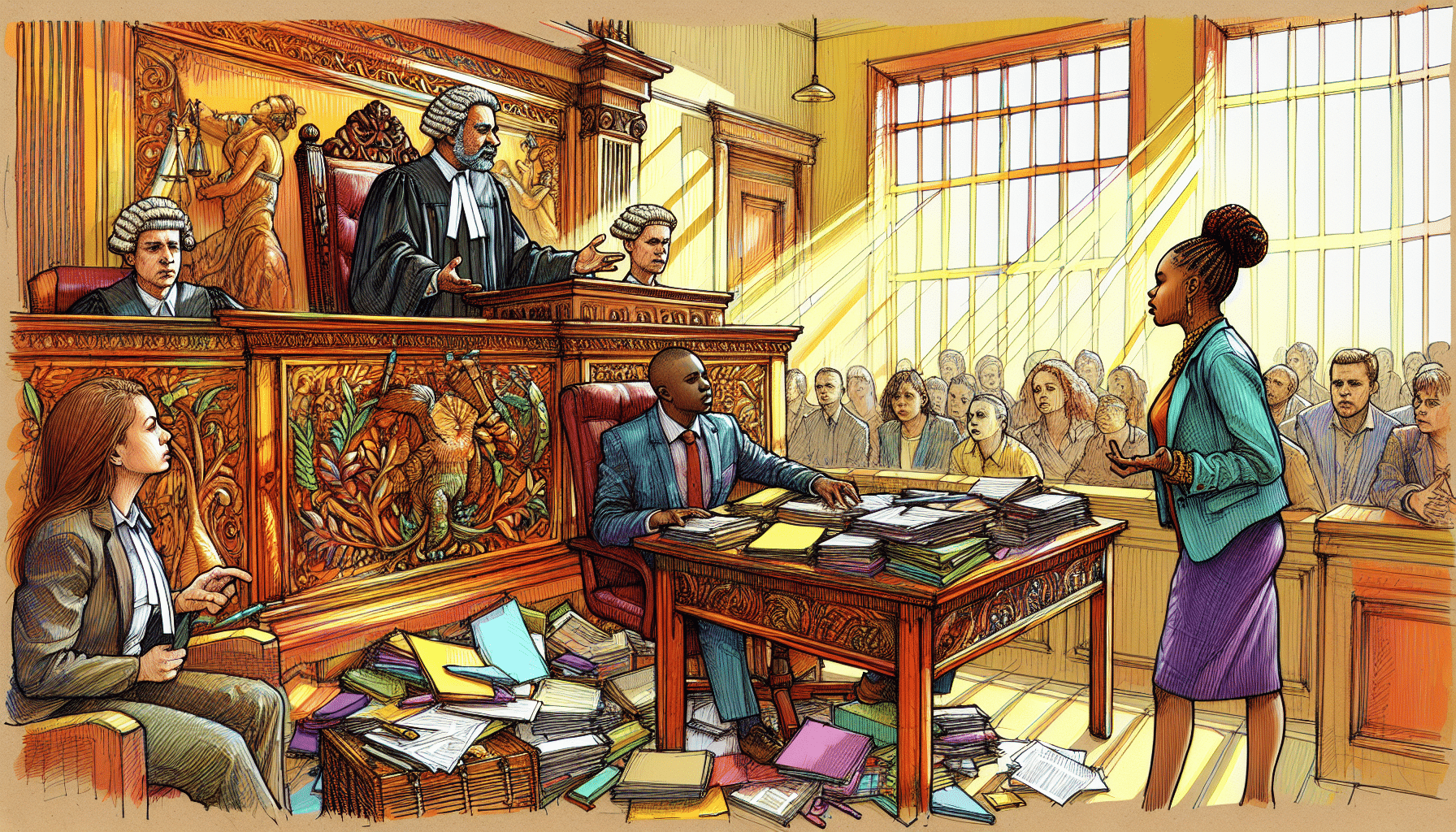
Solid evidence is crucial when contesting a speeding ticket in traffic court. Types of evidence to consider include witness statements, photos of speed limit signs, and proof of a clean driving record. Witness statements can provide insight into the circumstances of the incident, while photos or videos may reveal issues with speed limit signage.
Evidence from a GPS device indicating a different speed can be particularly persuasive against law enforcement’s assessment. Showing that there was no visible speed limit sign can strengthen your argument by highlighting potential ignorance of the speed limit. Presenting a clean driving record can help show the judge your commitment to safe driving, potentially swaying their judgment.
Understanding the tendencies of the presiding judge can also help in effectively presenting and organizing your evidence. Knowing the types of arguments and evidence the judge favors allows you to tailor your presentation accordingly. This strategic approach can make a significant difference in the outcome of your case.
Cross-Examining the Police Officer
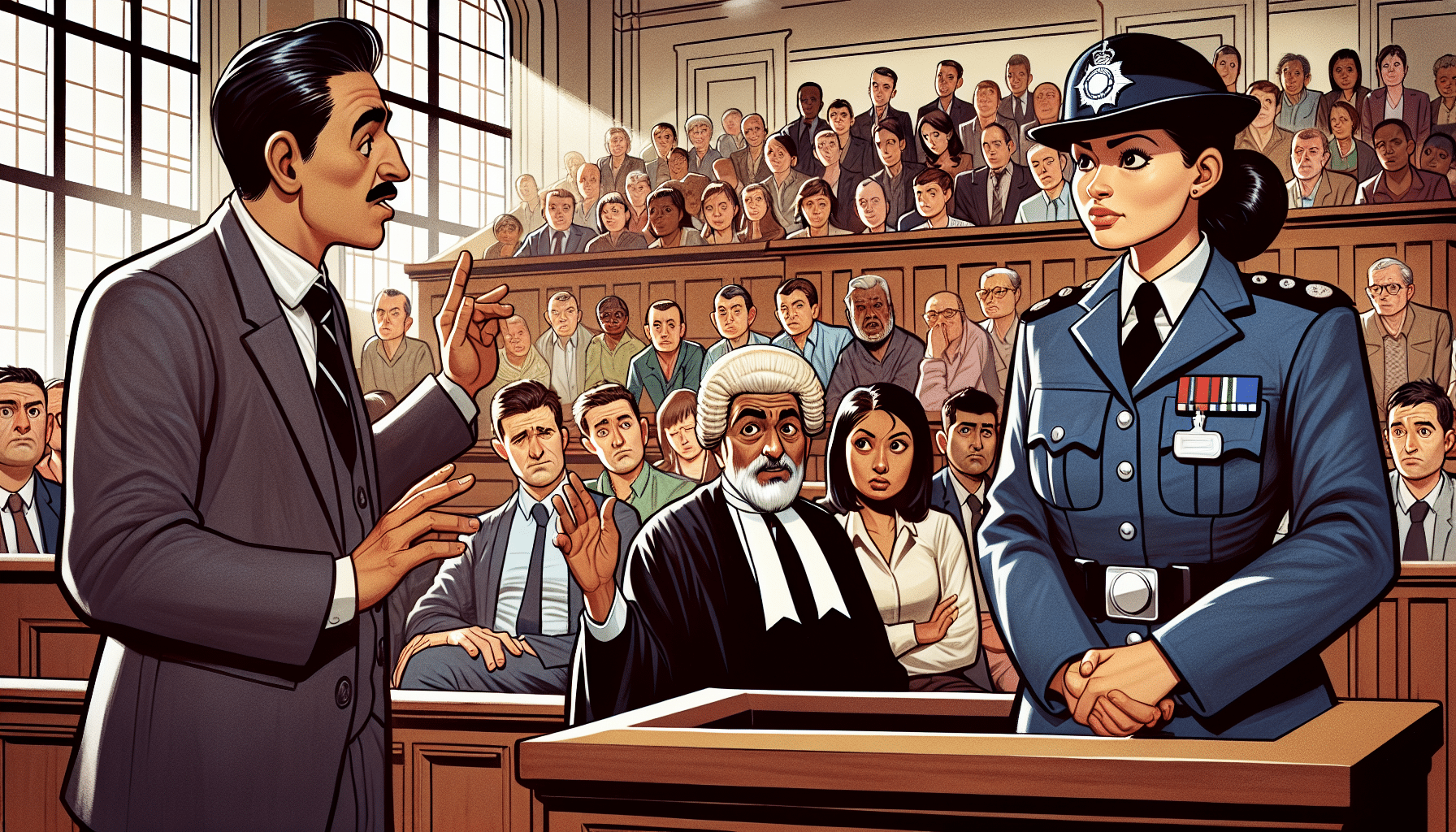
Cross-examine the police officer who issued the speeding ticket is crucial to your defense strategy. The primary goal of cross-examining an officer is to create doubt about the credibility of the evidence being presented against you. Prepare questions in advance to challenge the officer’s observations and the reliability of their evidence effectively.
Having a categorized list of questions can help maintain your focus and ensure you address all critical points during cross-examination. Focus relevant questions on the officer’s position during the alleged violation, the calibration of their speed detection equipment, and any inconsistencies in their testimony.
Judges typically provide some flexibility in questioning but may limit lengthy lines of inquiry that seem irrelevant. Being well-prepared and strategic in your questioning can create sufficient doubt about the officer’s evidence, potentially leading to a more favorable outcome.
Using “Magic Words” in Court
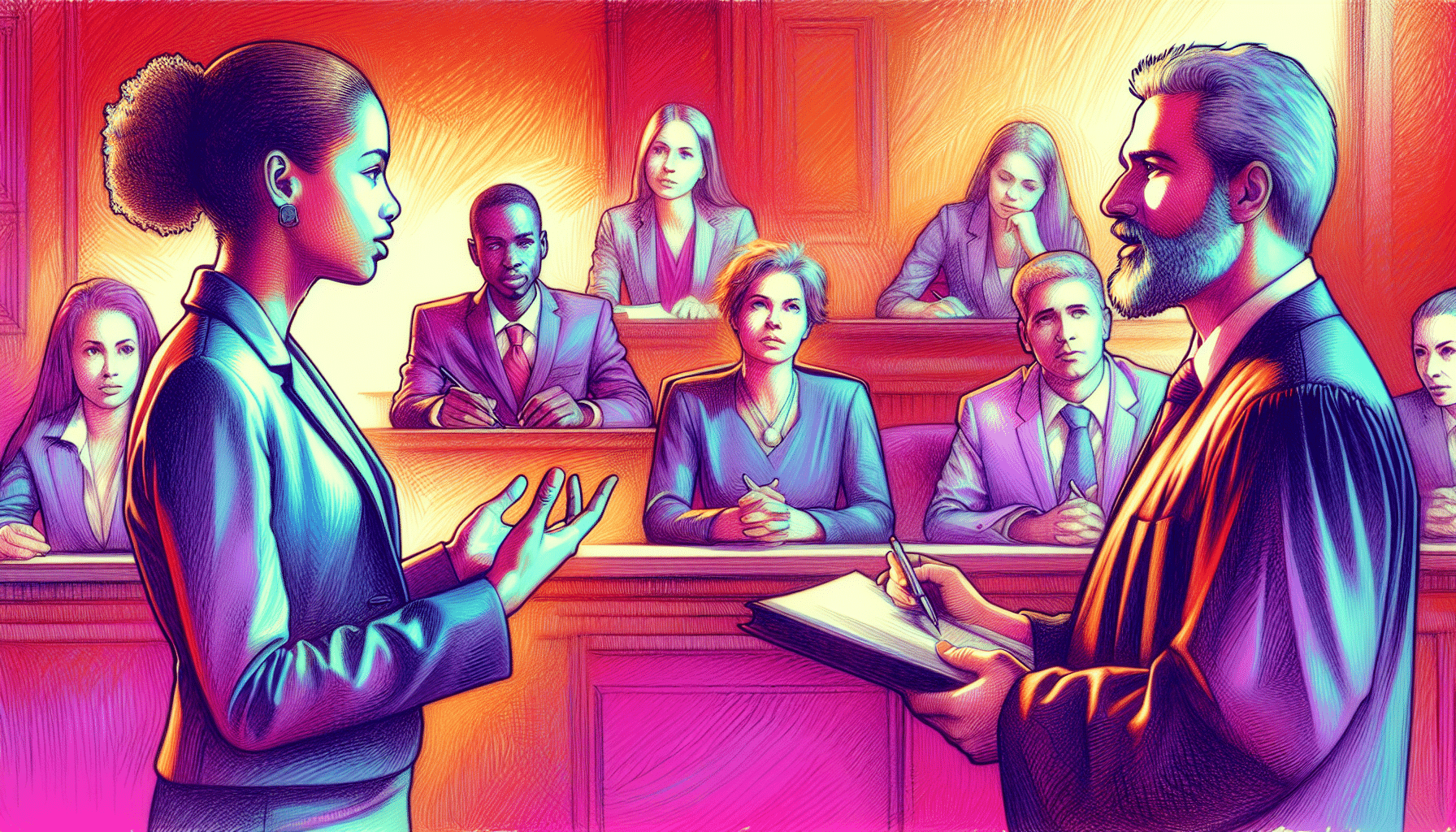
The language you use in court can significantly influence the outcome of your case. Certain phrases, often referred to as “magic words,” can enhance the persuasiveness of your arguments. Subtle shifts in language can alter perceptions and outcomes in legal arguments, demonstrating the huge difference that word choice can make.
Emotionally impactful language can help you connect with the judge or jury, improving the chances of a favorable verdict. Famous quotes from literature or Shakespearean vocabulary can add persuasive power to your statements, making them more memorable and impactful.
Carefully choosing your words and using language effectively can strengthen your arguments and increase the likelihood of having your speeding ticket dismissed or receiving a more favorable judgment.
How to Dress and Behave in Court
Your appearance and behavior in court can greatly impact the judge’s perception of your case. Dressing appropriately, in business casual attire, demonstrates respect for the judicial process and shows that you take the proceedings seriously. Men might wear dress slacks and a button-down shirt, while women might choose a long skirt and blouse.
Neutral colors and well-fitting clothes present a more polished look compared to bright shades and baggy garments. It’s advisable to conceal tattoos and remove piercings to maintain a professional appearance. Maintaining a neat appearance, including grooming hair and nails, enhances your overall presentation in court.
Courtroom etiquette is also important. Show respect by not interrupting the judge, remaining quiet and seated while waiting for your ticket in court, and turning off cell phones to avoid disruptions. First impressions are critical, and your presentation can affect how judges and juries view your case.
Common Mistakes to Avoid in Traffic Court
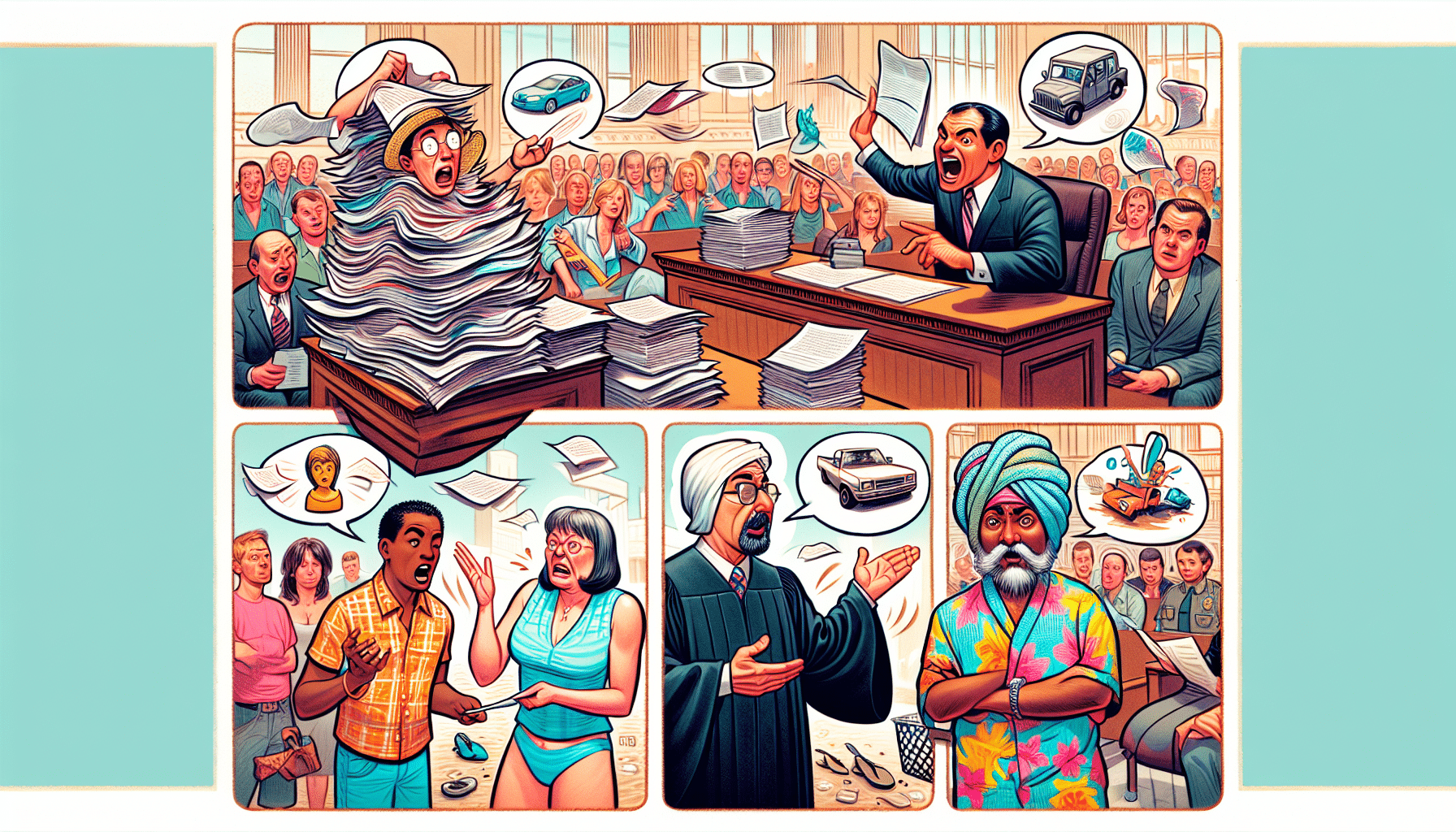
Avoiding common mistakes in traffic court can greatly affect the outcome of your case. One frequent error is missing the court date, which can lead to an automatic guilty verdict. Attend your court date and be punctual to avoid negative consequences and ensure you are prepared to pay court costs if necessary.
Another mistake is failing to gather and present adequate evidence to support your case. Without sufficient evidence, contesting the speeding ticket effectively becomes challenging. Have all necessary documents, witness statements, and other relevant proof prepared and organized.
Lastly, people often make mistakes in their presentation and behavior in court. Being respectful, professional, and well-prepared can improve your chances of successfully contesting a speeding ticket. Avoiding these pitfalls can enhance your defense and increase the likelihood of a favorable outcome.
Potential Outcomes and Next Steps
After presenting your case, the judge will decide on one of three outcomes: guilty as charged, guilty of a lesser offense, or not guilty. If found guilty, consequences may include points on your driving record, possible license suspension, fines, and even jail time. A conviction for a traffic violation stays on your record permanently, while points can be dismissed after three years. Completing a traffic school may help mitigate some of these consequences.
Winning your case means no offense will appear on your driving record, as only a conviction results in a record entry. In some cases, completing an online driving course after a guilty plea can mitigate negative consequences, such as reducing insurance premiums. Losing a case at trial may lead to a ‘trial tax,’ a harsher penalty for perceived misuse of court resources, including potential court costs.
Knowing the potential outcomes and next steps can help you prepare for possible scenarios and take appropriate actions based on the verdict. Whether you achieve a favorable outcome or need to take further steps, being informed and proactive makes a significant difference.
Summary
Contesting a speeding ticket in California requires thorough preparation, a clear understanding of your case, and effective presentation skills. By understanding the specifics of your speeding ticket, preparing adequately for your court date, and presenting compelling evidence, you can increase your chances of a favorable outcome.
Remember to avoid common mistakes, dress and behave appropriately in court, and use persuasive language to strengthen your arguments. With the right approach and knowledge, you can navigate the traffic court system effectively and achieve the best possible result for your speeding ticket case.
Frequently Asked Questions
What should I do if I find an error on my speeding ticket?
You should challenge the validity of the speeding ticket by bringing the error to the judge’s attention during your trial. This approach can potentially lead to the ticket being dismissed.
How important is presenting evidence in traffic court?
Presenting evidence in traffic court is vital, as it can greatly strengthen your case against a speeding ticket. Solid evidence, like witness statements and photos, can make a significant difference in the outcome.
Can I challenge the accuracy of the officer’s speed assessment?
Yes, you can challenge the officer’s speed assessment by providing evidence such as the calibration of your vehicle’s speedometer and GPS data to dispute the reported speed.
What are the potential consequences of a guilty verdict in a traffic ticket case?
A guilty verdict in a traffic ticket case can lead to points on your driving record, potential license suspension, fines, and possibly jail time. Remember, such a conviction remains on your record permanently.
How can I improve my chances of a favorable outcome in traffic court?
Being well-prepared with compelling evidence and avoiding common mistakes significantly enhances your chances of a favorable outcome in traffic court. Additionally, dressing appropriately and maintaining a respectful demeanor will positively influence your presentation.




